George Hewitt, an outstanding linguist and Caucasian scholar of London University, came to Abkhazia due to his interest in complex languages - but he found his fate there, friends, colleagues and a second home.
Arifa Kapba
George Hewitt is an English professor who became a famous Caucasian scholar and connected his life with Abkhazia. His journey to the Abkhaz land was very unusual. And he was fascinated by languages since childhood - especially complex and ancient ones.
He was born November 11, 1949 in the family of Thomas Douglas Hewitt and his wife Joan in the city of Doncaster, in the UK. The family tree of Hewitt's ancestors is quite interesting. For example, one of them, on the maternal side, fought against King Henry V in the battle of the British and French in 1410 at Agincourt (in modern France - ed.). There is also a distant relationship between the family and the family of Camille, the Duchess of Cornwall, the current wife of the heir to the British crown, Prince of Wales Charles.
George's father, Thomas Douglas Hewitt, lived with his three brothers and parents on the banks of the Mersey River in Liverpool, until in 1915 his father was killed in an incident. The family was going through hard times. Thomas and his other brother even had to leave for Australia for several years, but by 1933, Thomas Douglas Hewitt still returned to his homeland in England, unlike his brother, who remained in Australia until the end of his life.
Professor George Hewitt himself, reflecting on his childhood today, notes that he grew up as a “rather spoiled child”, was also antisocial and always preferred privacy to any society. The Hewitt family did not have their own car, and therefore, even for the holidays, they did not go far - most often to their father’s relatives in Liverpool. This city has always seemed to little George much more attractive than his native Doncaster.
Languages as a riddle
While still at the Grammar School for Boys of Doncaster, young George Hewitt discovered the ability to languages. As a means of communication, Hewitt’s language was generally of little interest - due to all the same isolation. Most likely, this was a relation to unknown, “mysterious” languages as riddles to be solved.
“I began to study ancient Greek in the third year of study, and ended up mastering Latin, Greek, French and German at a simple level. And, since it was never interesting for me to speak English or any other language with people, by the age of 18 I chose Latin and Greek, as well as ancient history, to study at an advanced level [out of live use],” recalls professor Hewitt.
In 1972, George Hewitt graduated from St. John's College in Cambridge. In 1973 - received a linguist diploma, since 1976 he was a master.
His path to learning Caucasian languages was not easy, but very interesting. Back in Cambridge, fascinated by Indo-European languages, George Hewitt learned about one of the most respected British experts in this field, the former Cambridge professor Sir Harold Bailey, who studied Sanskrit. “It turned out that we are neighbors in Cambridge,” says George Hewitt, “and I was fortunate enough to recognize him quite well as a result of our communication from 1973 [all the way] until 1996, when he was gone. He told me that there are two Indo-European languages that are poorly studied in Britain - Lithuanian and Armenian.”
So George Hewitt began to study the ancient Armenian language, until once the same professor Bailey told him that since he was studying Armenian, he should look at related languages. And he gave him a look at a book written in Georgian.
“I immediately fell in love with these letters, and although I continued to collect materials on the Armenian language for two more years, I spent more and more time studying Georgian and other Caucasian languages, which were not Indo-European and represented even greater complexity, but were more interesting for a linguist,” recalls Hewitt.
In English - about Abkhaz
Passion for these new languages encouraged George Hewitt to arrange a trip to Turkish Anatolia.
“Through a Circassian friend born in Turkey in the summer of 1974, I ended up in the Circassian village of Demirkapi. From there I went to the last village, where you could still find one of the Ubykhs, and before leaving I was given the phone number in Istanbul of the son of the last of those who could speak Ubykh well,” recalls Professor Hewitt when he first heard about Tevfik Esench.
That was, according to the professor, the last ubykh who knew his mother tongue well and could speak it. Hewitt then found Esench in Istanbul and spent five days with him recording his speech. This record is now widely available on Professor’s Hewitt website.
In 1975, George Hewitt ensured that he had left to study the Georgian language, and at the same time the Caucasian languages that he was interested in (in particular, the Circassian), in Tbilisi. But he failed to find those there who would speak with him in English about the Circassian language. But the young scholar found those who agreed to speak English with him about the Abkhaz language - two graduate students from Abkhazia, Zaira Hibba and Aza Inal-Ipa.
A year later, Zaira became his wife. In such a wonderful way, the Abkhaz language also entered the sphere of linguistic interests of George Hewitt.
In Sukhum: “maintain a simple dialogue”
George Hewitt first came to Abkhazia in April 1976: he arrived in Sukhum from Tbilisi by bus and stayed in the “Abkhazia” Hotel, which has now been burned. He remembers to the smallest detail the first impressions that the town made on him.
“It was already dark when I arrived at the hotel to check in my room. So dark that somehow I didn’t even understand how close the sea was. When I got up the next morning and pulled back the curtains, I suddenly saw the calm blue waters of the Sukhum bay in front of me, and from the balcony I could see groups of houses on the hills, gradually rising with multi-colored roofs to Mount Bagrat,” Hewitt says picturesquely.
On his first visit to Abkhazia, Hewitt met many prominent Abkhaz scholars, such as Professor Shalva Inal-Ipa, Georgy Dzidzaria, Konstantin Shakryl, Sergey Zukhba and others. As a linguist, of course, he was primarily interested in issues related to the Abkhaz language.
By the way, now the professor speaks excellent Georgian and Abkhaz languages, although he modestly asserts that he can “only maintain a simple dialogue” in Abkhaz, and fully speaks only one language - English.
Together with his wife Zaira Hibba, Professor Hewitt later worked on such important Abkhaz textbooks as “Abkhaz language” in two volumes, “A Handbook for Reading Abkhaz Newspapers”, “Abkhaz Folk Tales”, compiled “Pages of the Abkhaz Folk Tradition” in collaboration with Zurab Dzhapua, “The self-tuition of the Abkhaz language.”
An open letter to the Georgian people
Until the Patriotic War of the people of Abkhazia (1992-1993 - ed.), Professor Hewitt, together with his wife and two daughters, visited Abkhazia every year, living for three summer months in Ochamchira with his spouse's relatives.
“I remember Abkhazia until 1989 as a prosperous place with a bustling life, and, as far as I could tell, everyone had a good relationship with each other, regardless of nationality. Of course, I was somewhat afraid of a possible tension between Abkhaz and Georgians, but this is more likely due to some remarks I heard from Georgians on the other side of the Ingur River. However in Abkhazia, as far as I could see, the relations [between people] were good and trusting so that in Ochamchira, for example, people left their homes, not caring that they needed to be locked. And I was shocked by how quickly in 1989 local Georgians and Mingrelians succumbed to terrifying chauvinistic rhetoric that came from people like Gamsakhurdia (Zviad Gamsakhurdia - Georgian political and public figure, Chairman of the Supreme Council of the Georgian SSR and first President of Georgia in the early 1990s - ed.)”.
Having witnessed all the terrifying clashes that occurred between Georgians and Abkhaz in the summer of 1989 (the armed conflict in July 1989 in Sukhum, resulting in human casualties - ed.), Seeing how quickly relations between the two peoples deteriorate, in July 1989 George Hewitt wrote an open letter to the Georgian people. In a letter, he expressed his indignation at the openly chauvinistic and nationalist attacks on the part of Georgians against representatives of other peoples.
It should be noted that at the time this letter appeared, Professor Hewitt was one of the most respected foreign Caucasus experts in Georgia. All doors were open for him in Tbilisi, he spoke on Georgian television and at the same time spoke Georgian, which caused delight in everyone in this country. But the letter forever blocked his path to Georgia. Hewitt was officially called the “enemy of the Georgian people.”
Recalling this letter, Professor Hewitt notes that he did not intend to create a scandal at all, but pursued other goals: “I wanted, using my good name and popularity among Georgians, to inspire “wise heads” in this country [to think] how destructive chauvinism can be for a country coming from opposition figures such as Merab Kostava, Zviad Gamsakhurdia, Giya Chanturiya, Irakli Tsereteli, but, unfortunately, there were simply no “wise heads”, and we all know the terrible consequences that this chauvinism as for Abkhaz and Ossetians and Georgians themselves.”
Such was the bold and principled position of Professor George Hewitt at that difficult time.
Between Abkhazia and Great Britain
After the war, the Hewitt family visited Abkhazia in 1996. The daughters of George and Zaira bear the Abkhaz names - Amra and Gunda. Both of them speak Abkhaz brilliantly along with other languages. They presented Professor Hewitt with his beloved grandchildren - Alexander, Anna Joan, Sofia and Nicole.
All of them have citizenship of three countries - Abkhazia, Great Britain and Russia. Professor George Hewitt himself became a citizen of Abkhazia under President Sergey Bagapsh. He was also awarded the highest state award of Abkhazia “Honor and Glory”.
Now the scholar has already finished teaching Caucasian languages at the Department of Oriental and African Studies, University of London. Together with his wife Zaira, they live in Hewitt's hometown, Doncaster. Among the professor’s favorite occupations, besides languages, there is also floriculture, which he did a lot recently, and now his hobby is mainly listening to classical music, in which he especially emphasizes Beethoven’s imagination for piano, choir and orchestra. And, of course, Professor George Hewitt continues to read a lot. By the way, his Caucasian library is considered one of the largest private libraries in all of Europe.
Hewitt visit Abkhazia every year. Even when they are in Doncaster, they know everything that happens in the Republic. Professor Hewitt is in an active business and friendly correspondence with many good friends in Abkhazia, thereby keeping under his radar the small country that has long been his second home.

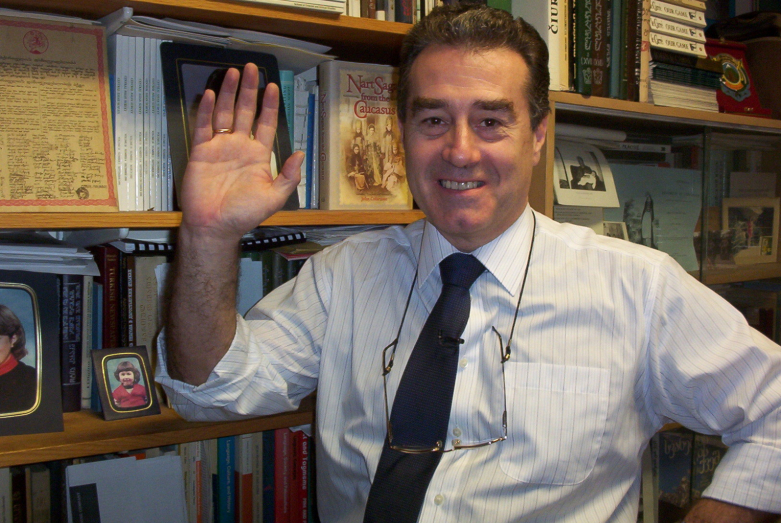
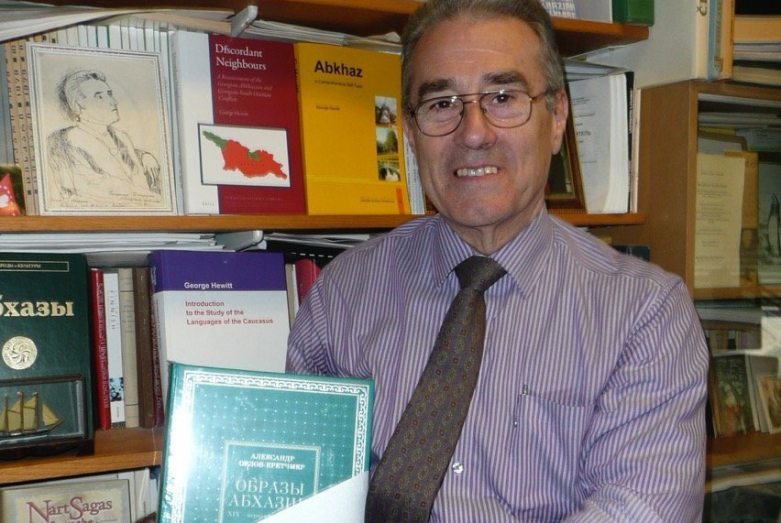
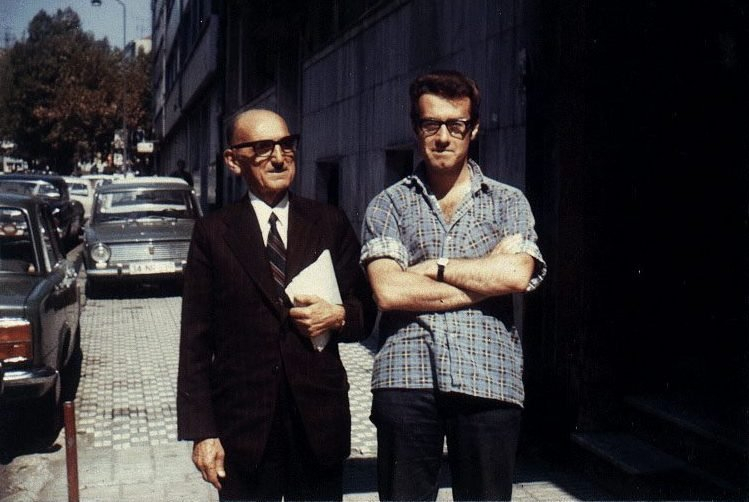
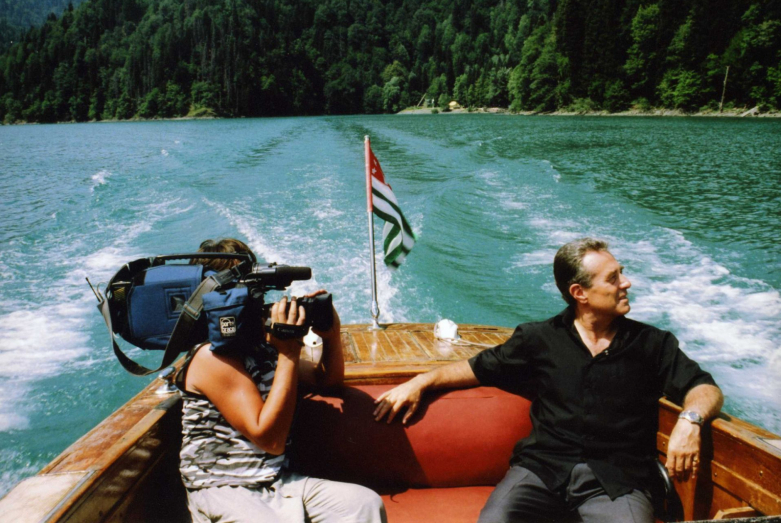
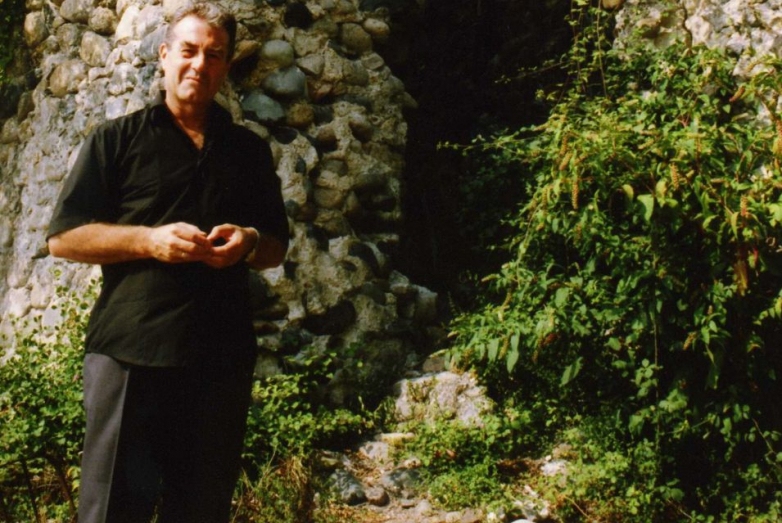
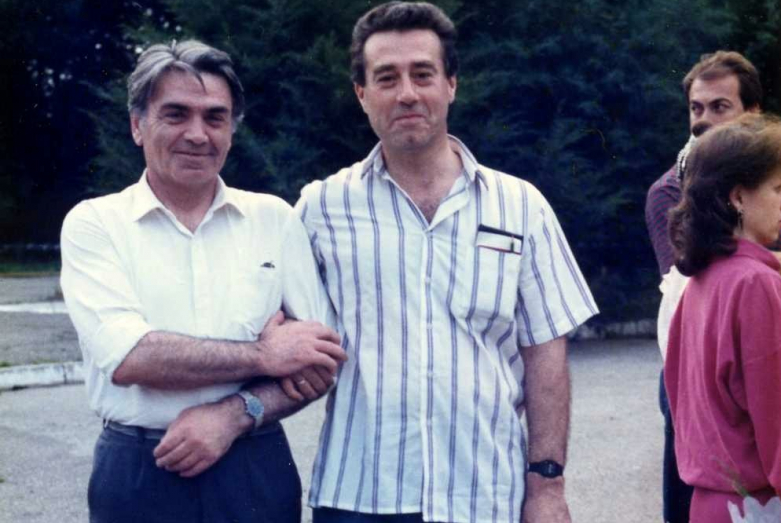

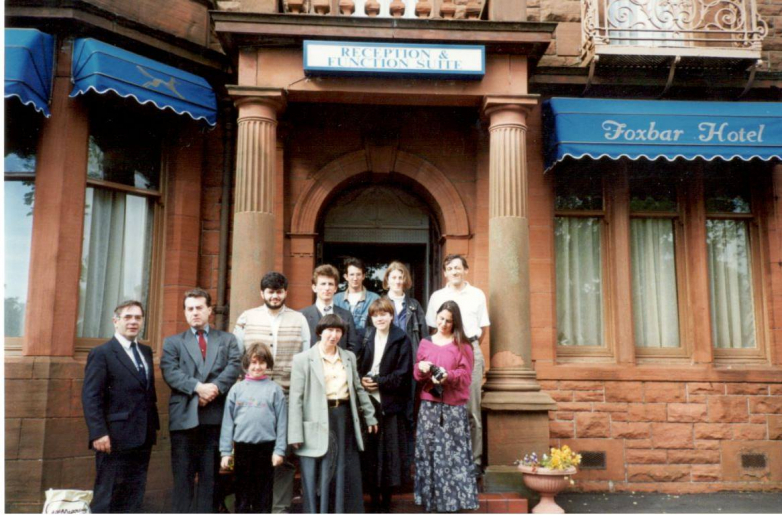
to login or register.